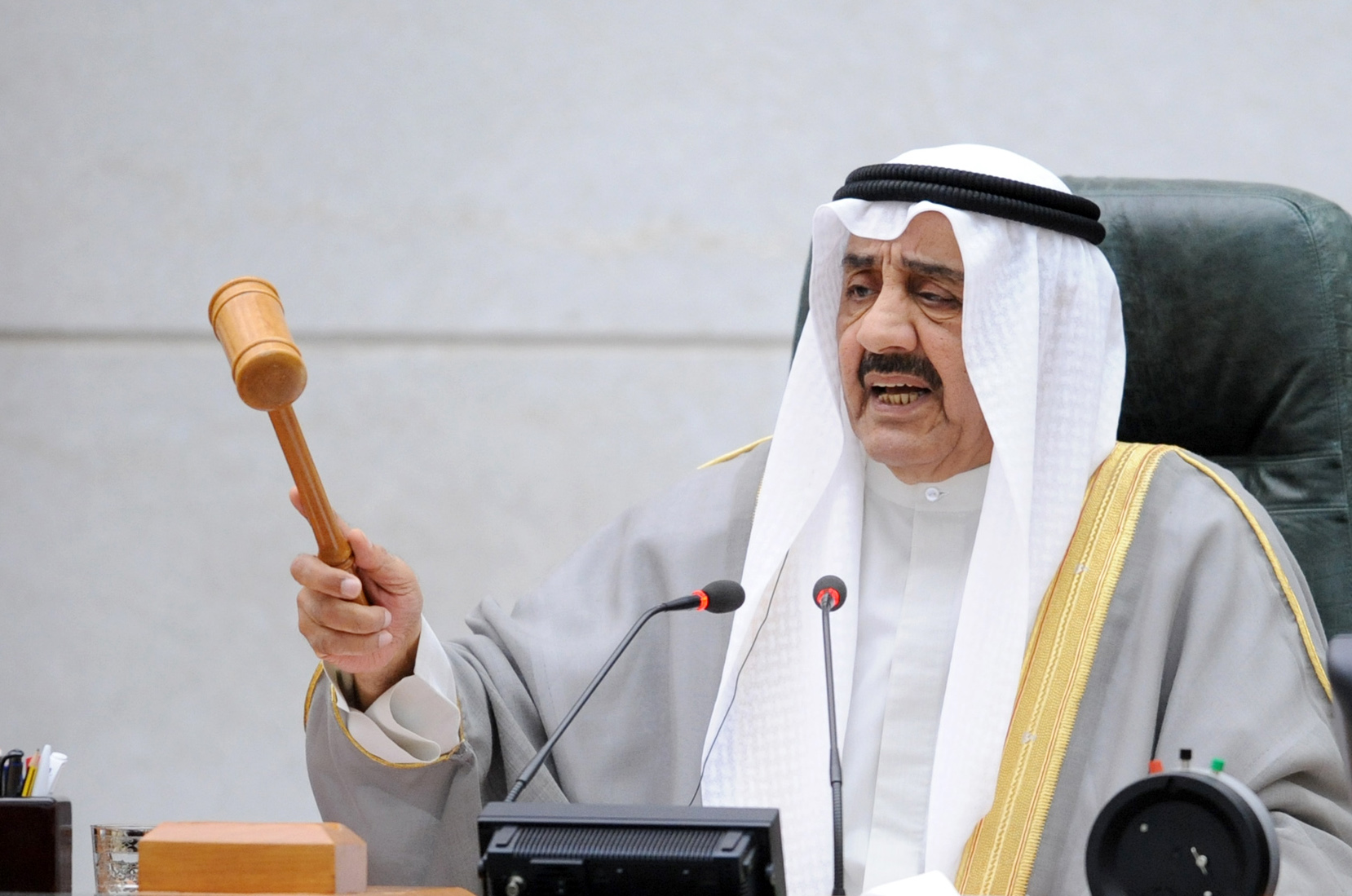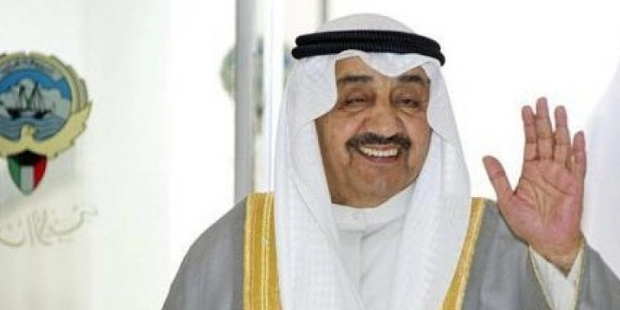Billionaire Nasser al-Kharafi, who died in Cairo on April 17 of a heart attack at the age of 67, is being mourned not only in his native Kuwait but in business and leadership circles internationally. He was eulogized for being a shrewd yet fair businessman, and a philanthropist. Mr. al-Kharafi was ranked number 77 in the 2011 Forbes Magazine list of the world’s richest, with a wealth estimated at $11.5 billion.
Mr. al-Kharafi, one of Kuwait’s most prominent businessmen, was born in 1943. A son of late businessman Mohamed Abdul Mohsen al-Kharafi and brother of the speaker of Majlis al-Umma, the parliament of Kuwait, Jassem al-Kharafi, he built his business conglomerate, The al-Kharafi Group, by aggressively widening its activities around the world. Mr. al-Kharafi’s father established the group as a contracting company in 1956.
The relationship between Nasser al-Kharafi and Jassem al-Kharafi came to be known in Kuwait as the “economy-politics duet” and drove many to say that the influence of the Kharafis is almost equivalent to that of the Kuwaiti ruling family
His enterprises included engineering, construction, maintenance petroleum, water, chemicals, and energy.
The news of Mr. al-Kharafi’s death dealt a blow to the Kuwaiti stock market with the shares of the companies affiliated to his al-Kharafi Group witnessing a remarkable drop on the day he passed away.
The shares of Zain Telecommunication Network dropped by 3.3 percent to reach 1.160 Kuwaiti Dinars while the shares of the National Investment Company fell 5.1 percent with 275 fils per share. The same applied to the shares of the National Bank of Kuwait, the country’s biggest lender, which dropped by 1.7 percent to reach 1.180 Kuwaiti dinars.
Mr. al-Kharafi was a board member of the National Bank of Kuwait. His group also owns 16 percent of the shares of the National Bank of Kuwait, the biggest in Kuwait and the sixth biggest in the Arab world.
He was also on the board of the al-Khair National Company for Stocks and Real Estate, which owns 16.5 percent of Zain, 33 percent of Coast Investment and Development Company (al-Sahel), 68 percent of Kharafi National, the group branch specialized in contracting services, 48 percent of al-Mal Investment Company, 37.5 percent of Gulf Cable and Electrical Industries, 16 percent of Kuwait Pipe Industries and Oil Services Company, 67 percent of the Kuwait Food Company, and 18 percent of the Egypt Kuwait Holding Company.

Mr. al-Kharafi was one of the most prominent Arab and Gulf investors in Egypt with his group involved in 35 sectors in the Egyptian market, including energy, telecommunications, real estate, tourism, airports, and mass media. The total investment of the Kharafi Group in Egypt exceeds $7 billion.
The massive investments of the Kharafi Group in Egypt were recently crowned with the group’s winning $650 million bid for the supply, installation, and operation of two power stations in the cities of Ismailia on the Suez Canal and Damietta in the Nile Delta.
The Egypt Kuwait Holding Company, established in 1997, is one of the most important sources of dollar shares in the Egyptian bourse.
$2.1 billion Marsa Alam International Airport, located in the Egyptian Red Sea resort of Marsa Alam, is also one of al-Kharafi Group’s major projects.
The al-Kharafi Group’s projects in Marsa Alam include Port Ghalib, which comprises a marina that accommodates 1,050 yachts, thus becoming the biggest marina in the Middle East. Attached to marina is a group of hotels and resort lodges that make the city one of the most popular tourist destinations in Egypt.
Owing to the leverage he enjoyed in a variety of business sectors and his strong financial standing in several markets in the region, the death of Mr. al-Kharafi has had a deep impact not only on Kuwait and other Gulf nations, but also in the entire Arab world.
After Nasser al-Kharafi took over, the group expanded its activities to encompass a wide variety of business segments like food, steel, real estate, tourism, entertainment, agriculture, trade, aviation, and telecommunications and to reach several Arab countries like Kuwait, Egypt, Lebanon, Syria, Jordan, and Morocco.
The companies affiliated to the group yield strong influence in the Kuwaiti bourse like Gulf Cable and Electrical Industries, Kuwait Pipe Industries and Oil Services Company, Coast Investment and Development Company (al-Sahel), al-Mal Investment Company, Kuwait Foundry, Kuwait Portland Cement, and Heavy Engineering Industries and Shipbuilding Company in addition to flagship companies like the National Industries Group and management associates like Gulf Bank.
In addition to the long list of companies that highlights the magnitude of Nasser al-Kharafi’s business in the Kuwaiti market, the al-Kharafi family occupies a prominent political position in the country.
The relationship between al-Kharafi family and the ruling family was, however, not one based on competition. The Kharafis have always been close allies of the Kuwaiti government even though at times its policies might not be strictly in line with those of the group or his own.
The political leverage enjoyed by the family, which is also characterized by moderate religiosity, enabled Nasser al-Kharafi to offer counsel about several of the region’s most sensitive issues like the stressful relations between Iran and its Arab neighbors.
He had also been a supporter of Hezbollah and made several statements to that effect, the last of which was an article published a week ago under the title “To live in dignity or die with pride.” The article prompted Hezbollah officials to thank Mr. al-Kharafi on television.
Mr. al-Kharafi’s opinion departed from that of his government especially after Kuwait joined Gulf nations that opposed Iranian intervention in the region in the wake of the discovery of an Iranian spying network in Kuwait.
But Mr. al-Kharafi had always managed to separate between his political ideologies and his investments. For example, Egypt remained the country where his most crucial businesses were centered even though it joined the anti-Iran camp together with Jordan, another country in which the al-Kharafi Group operated.
Nasser al-Kharafi enjoyed strong ties with the pre-revolution Egyptian regime and received lavish treatment from senior officials owing to the huge investment he had in the country. Port Ghalib, completed in 2001 with a total cost of $1.2 billion, is one of the al-Kharafi Group’s most important projects in Egypt, and attracted thousands of tourists.
Regardless of ideological differences between him and other Arab countries or even between him and the Kuwaiti government, Nasser al-Kharafi always emphasized his pride in his Arab identity and his objection to Israeli policies, which enhanced his popularity across the Arab world.
Such popularity had a downside to it.
For instance, the group’s business was undoubtedly affected by political squabbles in several parts of the Arab world. The Kuwait Food Company (Americana) was faced with harsh criticism and calls for boycotting its products swept the region as part of campaigns calling for boycotting everything American.
Nevertheless, Mr. al-Kharafi’s comment on boycott calls was extremely thought provoking: “Had it been called Africana, the exact same thing would have happened.”
He fought another significant battle, an internal one this time, when he decided to sell his share in Zain Telecommunication Network to the Emirati company Etisalat in an $11.7 billion deal.
The decision triggered fierce campaigns against The al-Kharafi Group by parliamentarians and shareholders in Zain, which drove Etisalat to pull out of the deal, one that was viewed my many analysts as the solution to the stagnation the Kuwaiti market suffered.
Mr. al-Kharafi’s role in striking lucrative deals at the time of market stagnation was underscored when he managed a year ago to sell Zain units in Africa to the Indian telecommunications company Bharti Airtel Limited for $10.7 billion.
This deal, seen as one of the biggest during the financial crisis, secured $5 billion in profits to the company and its shareholders.
With the death of Nasser al-Kharafi, it is up to the third generation of the al-Kharafi family to preserve his legacy of economic genius and investment success.
It is true that Nasser al-Kharafi was quite lucky when he started his business. He came from a rich family in which the first generation, represented by his father, benefited from oil money as well as the shipbuilding business.
The second generation, represented by Nasser, managed to capitalize on the first generation’s success and to expand the business to make the al-Kharafi empire what it is now.
Now comes the turn of the third generation, represented mainly by Nasser’s sons—Marzouk who heads American operations, and Badr who has recently joined Zain’s management. Both are so far following in their father’s footsteps as far as business is concerned.
Jassem al-Kharafi’s sons, Talal and Loai, are also expected to play a part in preserving the family’s legacy. Loai, who is more present in the public scene than his brother, seems to be more interested in politics than economy and is more likely to continue in that track.
(Sonia Farid of Al Arabiya can be reached at: sonia.farid@mbc.net)
Nasser Al Kharafi Biography Networth Family Business Nasser Al Kharafi Biography Networth Family Business Nasser Al Kharafi Biography Networth Family Business Nasser Al Kharafi Biography







[…] Al-Kharafi is the vice chairman of M.A. Al-Kharafi & Sons, a conglomerate founded by his late father […]
[…] Mansion: In November 2002, “Girls Gone Wild” founder Joe Francis paid $5.5 million for a 6,500 […]